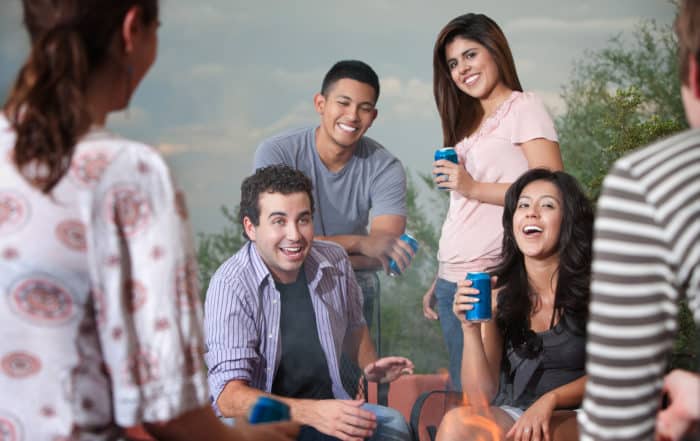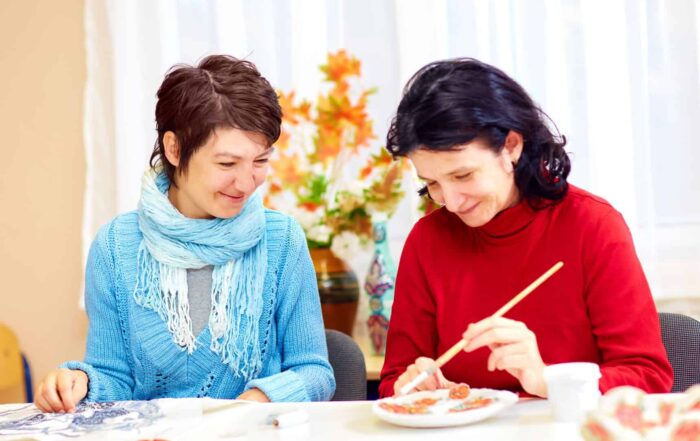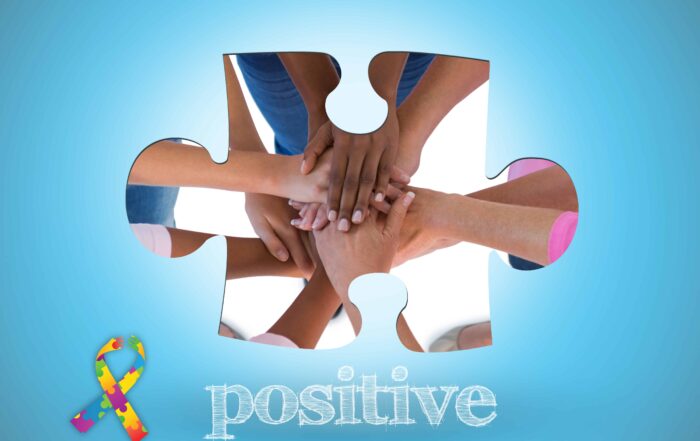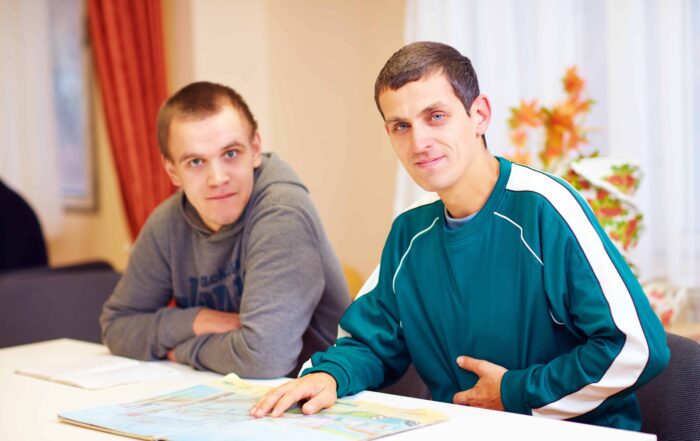In this recorded panel, adults and older youth with autism share their experiences and reflections on transition moments in their lives. Campbell Teague, Chloe Rothschild, Jeremy Sicile-Kira, Sondra Williams, and Paul Nussbaum introduce themselves and answer questions from presenter Valerie Paradiz, Ph.D., and the audience. This panel was part of the Fall 2012 Autism Research Institute Conference.
Panelist introductions:
Paul Nussbaum (1:20) was diagnosed with autism at age 40 after years of difficulty with social interactions and employment. Since his diagnosis, he has started figuring out how to create the best life for himself, functionally and socially.
Chloe Rothschild (4:20) is a young leader for Autistic Global Initiative (AGI) and attended an autism charter school at the time of this presentation. She aims to instill hope through education and advocacy plans for individuals with autism.
Sondra Williams (5:25) is the director of the Young Leaders Division at AGI. She attended 17 schools in 22 years of education and, after her late diagnosis, became a speaker, author, and mother of four autistic children.
Danny Bummin (6:50) started an animation business at age 11 and has produced shorts about bullying and autism advocacy. She was a high school senior at the time of the presentation, and she teaches animation to autistic children.
Jeremy Sicile-Kira (10:06), another youth leader with AGI, uses an AAC device and text audio to present. He writes for autism magazines and gave a commencement speech at his high school graduation. Jeremy aims to spread awareness of the positive aspects of autism across the world.
Campbell Teik (12:00) was working toward his master’s at the time of the presentation and is an AGI youth leader. He was diagnosed with autism at 23 and now hopes to break down autistic stereotypes to show its real potential.
Paradiz introduces the subject matter and gives an overview of the different relationships the panelists have with transitions. (14:20) She states, “Many people in the disability community understand the term “transition” as a time when a person leaves childhood and enters into adult life.” However, she continues, special education has a more narrow definition of the time when a school must implement a transition plan to prepare students for life after school (15:39). Paradiz then asks the panelist three questions:
1. How did (are) you experience transition?
2. Did (does) your school provide a plan that supported your process, and what was the outcome?
The panelists respond to questions one and two together: Nussbaum considers many points in his life as transition periods. He notes that the things we find meaningful change over time and discusses the difficulties he faced during transition periods due to a lack of support and understanding when he was younger (16:40). Rothschild details her experience postponing her graduation and working with her team of specialists to find the best path for her. She attended an autism charter school that actively taught life skills like self-determination (19:44). Williams navigated transitions from middle school to institutions (ages 13-24), then to marriage and parenting, and her role with AGI (21:35). Sicile-Kira left high school at 22 and used a transition plan that he created with his caretakers and parents. He discusses his struggles with self-advocacy and urges others to be brave and stick to their principles (25:03).
3. Knowing what you (panelists) know and what you have experienced in transition, what would you share with parents of children with autism who have not reached the transition age (27:39)?
Nussbaum emphasizes honest and holistic evaluation and suggests creating a roadmap based on an individual’s strengths and weaknesses (28:18). Rothschild states that life skills and academics can be taught together and tells parents to begin preparations for transitions early (31:18). Williams reminds families that transitions are lifelong and asserts that they include developmental changes as well as life transitions (32:06). Sicile-Lira suggests teaching self-advocacy and self-regulation from a young age (34:35). All of the panelists reiterate the need to begin preparation for transitioning at young ages and build off the strengths of each individual.
Paradiz provides acknowledgments and thanks to panel members before opening the question and answer session (36:45). During the Q & A, they discuss peer-to-peer models and mentor programs, children’s need for positive reinforcement, and experiences mentoring autistic youth.
Published: 12/07/2012

The Science of Making Friends for Autistic Youth: Lessons from the UCLA PEERS Program
Free webinar at 5 p.m. Eastern time (US), Wednesday August 28, 2024 Learn research updates on evidence-based strategies to support adolescents and young adults develop social skills that encourage lasting friendships.
Study finds that employees with autism are less likely to exhibit “bystander” effect
Employees with autism spectrum disorders (ASD) may contribute to businesses in a unique way because they are less likely than neurotypical individuals to exhibit the “bystander” effect, according to a new
Autistic adults show enhanced generosity toward strangers
Adults with autism spectrum disorders (ASD) tend to be more generous to strangers than their neurotypical peers are, according to new research. In the study, Paul Forbes and colleagues explored differences
From Special to H.A.P.P.Y.
Peter Vermeulen, Ph.D., considers a positive approach to psychoeducation for autistic individuals. He draws on over 25 years of experience to illustrate contemporary changes in autism intervention focus and discourse. The speaker
Examining the Transition to Adulthood in Autism: Challenges and Opportunities in the Aim of Thriving
David B. Nicholas, Ph.D., examines the transition to adulthood and its implications for autistic individuals. He presents the ecosystem mentality and discusses recent findings supporting a holistic and future-oriented
Transitions from Pediatric to Adult Medical Care
Julie Corder, CNP, and Carrie Cuomo, DNP, CPNP, with the Cleveland Clinic Learning Hospital, discuss the critical stages of transition from pediatric to adult healthcare for individuals with complex medical needs. They







